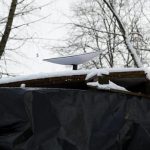British clean technology company, Altilium, has taken a big step towards producing electric vehicle batteries from recycled materials by unveiling an innovative project. The company, in collaboration with Jaguar Land Rover, plans to produce and test battery cells using materials recovered from used batteries of electric vehicles.
According to Tekna Technology Media’s scientific news department, the key to this project is Althelium’s EcoCathod process, during which valuable materials such as lithium, cobalt, and nickel are extracted from used batteries. This method not only reduces the need to extract new raw materials, but also significantly limits greenhouse gas emissions from battery production. According to the company’s press release, this process leads to a 60% reduction in carbon emissions.
With this initiative, Altilium and Jaguar Land Rover have taken an important step towards realizing the circular economy in the electric vehicle battery industry. Dr. Christian Marston, Chief Operations Officer of Althelium, expressed his satisfaction with this collaboration and emphasized the importance of demonstrating the competitiveness of batteries produced from recycled materials with the standards of the automotive industry. This can help to significantly reduce the environmental impact of the automotive industry.
Studies show that the demand for electric car batteries in the UK will increase significantly by 2030. In this situation, the development of sustainable methods for battery production and the use of recycled materials is of particular importance. Valuable materials such as lithium, cobalt and nickel, which are used in making batteries, are not found in abundance in nature. Therefore, establishing a sustainable supply chain for these materials is essential to the development of the electric vehicle industry in the UK.
Altilium has shown its commitment to developing the technology by building its first semi-commercial plant in Plymouth and planning to build Europe’s largest electric vehicle battery recycling plant on Teesside. The company estimates that the new plant will be able to recycle more than 150,000 electric car batteries annually, providing enough material to produce around 20% of the UK’s battery needs in 2030.
Jaguar Land Rover also plays an important role in this project by conducting detailed tests on battery cells produced from recycled materials. The company will ensure that the batteries produced meet the highest quality and safety standards. This collaboration between Altilium and Jaguar Land Rover represents a growing trend in the electric vehicle battery industry. Many large companies around the world are looking for ways to recycle used batteries and reuse their valuable materials.
Finally, it can be said that this innovative project is an important step towards the development of the electric vehicle industry and reducing dependence on natural resources. As technology advances and investments increase, it is expected that we will see further developments in the field of EV battery recycling in the near future.
To see the latest news, refer to the scientific news page of Tekna Media.
RCO NEWS
















